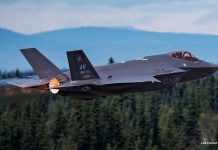Call it China’s double standards, the country has accused the US of blocking a key United Nations resolution, something Beijing itself has been practicing all along, especially on the Myanmar issue.
China on May 17 expressed its “regrets” that the US is blocking a UN Security Council statement on the Israel-Palestine violence, and has called for further international efforts to stop the violence.
China’s Foreign Minister Wang Yi stated at a virtual debate that the United Nations Security Council (UNSC) has been unable to stand together for Palestine solely due to the US’ obstruction.
Ironically, it’s China that has repeatedly blocked UN statements condemning the February 1 military coup in Myanmar. China is a veto-holding permanent member of the council.
Earlier this year, the US had put pressure on China to issue a strong condemnation of Myanmar’s military coup and detention of hundreds of lawmakers including ousted President Win Myint and the de facto head of government Daw Aung San Suu Kyi.
Supported by Russia, China prevented UN statements condemning the Myanmar coup, claiming that the military takeover and detention of Aung San Suu Kyi was “a big cabinet reshuffle.”
China’s Position On Myanmar
Myanmar’s expansion of large-scale projects with India, such as the India-Myanmar-Thailand Trilateral Parkway, the Kaladan Multi-modal Transit Transport Network, and the proposed Special Economic Zone at the Sittwe deep water port, can be interpreted as China’s motivation for supporting the coup.
Though China expected to benefit a lot from the China-Myanmar Economic Corridor, Myanmar has only authorized 9 of the 38 projects that it had planned, according to The Taiwan Times. China may have perceived its ambitions with Myanmar weakening.
China also opposes any international engagement in Myanmar and is concerned about Japan’s and the United States’ rising influence in the country.
China thus seeks to cement its ties with Myanmar but Beijing’s dilemma is that the current military regime in the Southeast Asian nation is known to be pro-India.
As reported by The Eurasian Times, anti-China sentiments have been swelling across Myanmar following its reluctance to openly condemn the military coup.
Chinese products have been boycotted and Chinese factories burned. The property damage has cast a shadow on Chinese businesses in Myanmar.
To make matter worse for Beijing, the junta’s head Snr. Gen. Min Aung Hlaing is known for his anti-China stance because of China’s tacit support to Rohingya militants active in Myanmar’s Rakhine state.
This has boosted India’s position with Myanmar’s military regime, as pointed out by Jayanta Kalita in a piece for The Irrawaddy. Thus, like China, India also initially maintained its silence on the coup, but later condemned the violence.
China-Palestine Ties
Though having formal diplomatic relations with Israel since 1992, China has always recognized the state of Palestine. From late Yasser Arafat to current President Mahmoud Abbas — Palestinian leaders have paid formal visits to China. Besides, Beijing does not view Hamas as a terrorist organization and advocates establishing a “sovereign and independent Palestinian state” with East Jerusalem as its capital.
China strives to preserve friendly relations with the Islamic world and has done so for years. The United States has been attempting to persuade Islamic countries against China on the Xinjiang issue, but China’s diplomacy has worked well in its favor. The biggest example is China’s all-weather ally Pakistan.
Even though the United States is Saudi Arabia’s most important Western partner and that Riyadh has long relied on US political and military support, however, President Joe Biden has proclaimed an end to backing for the Saudi-led war in Yemen, declaring a troop withdrawal from Afghanistan, and signaling a return to the Iran nuclear deal.
Saudi Arabia is now reportedly reaching out to its Middle Eastern rivals, implying that it is now mindful that US backing for its country is no longer assured.
In the midst of escalating Israel-Palestine tensions, China may consider Biden’s ambiguous stance on peacemaking as an asset in strengthening its relations with the Islamic world.




